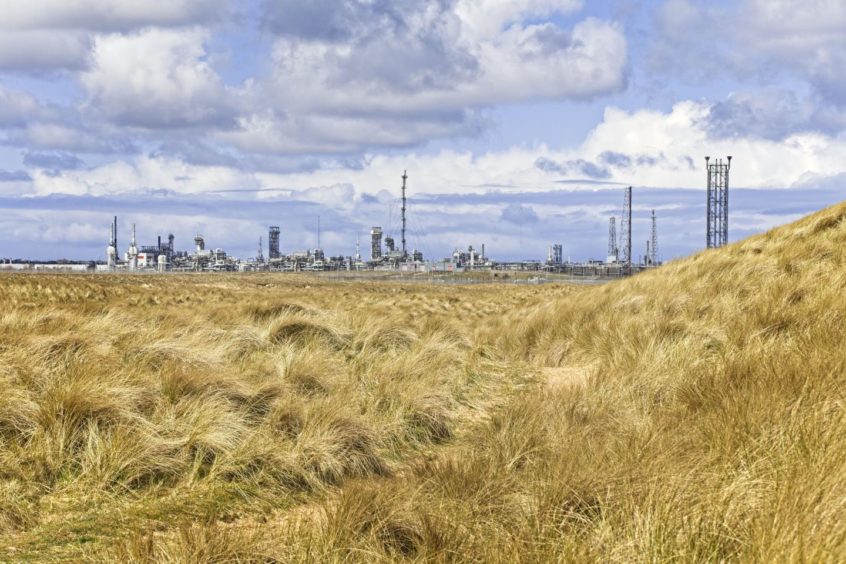
A new cross-sector group, featuring leading oil and gas firms, has been launched to pressure governments to get behind decarbonisation technology.
‘The Scottish Cluster’ is comprised of some of Scotland’s largest CO2 emitters, as well Acorn project partners Storegga Geotechnologies, Shell and Harbour Energy.
It’s designed to “unite communities, industries, and businesses” to deliver carbon capture and storage (“CCS”), hydrogen and other low carbon technologies, with the aim of helping governments to hit their net zero goals and creating jobs.
As part of its launch, the group has also kicked off the ‘Back the Scottish Cluster’ campaign, calling on ministers to support the decarbonisation of industry north and south of the border.
The cluster brings together stakeholders from key Scottish industries, including whisky, transport, technology, infrastructure, chemicals, energy, real estate, manufacturing and academia.
It’s hoped the by creating a unified voice, the group can stress the importance of CCS and hydrogen in slashing emissions, particularly in hard to abate sectors like transport, heat and power.
Moreover, it will support the deployment of carbon removal technologies like direct air capture.
The Scottish Cluster claims to have a “clear decarbonisation roadmap”, with the potential to address up to nine million tonnes of CO2.
It’s also hoping to create a CO2 transportation and storage solution through the use of Scottish Ports.
Under the plans, emissions from overseas could be brought to Scotland for safe stowage.
Through the Acorn CCS and hydrogen project, located at St Fergus in Aberdeenshire, Scotland has “unique potential” to spearhead decarbonisation efforts in Europe.
@AcornProject_UK will provide critical backbone infrastructure of the Scottish Cluster https://t.co/Kl2NnurMuF#BacktheScottishCluster #AcornProject #CCS #NECCUS #CCSRocks #netzero #co2storage pic.twitter.com/qK4gcy2Xmr
— Pale Blue Dot Energy (@PBDEnergy) May 13, 2021
The scheme, which is being led by Banchory’s Pale Blue Dot Energy, a subsidiary of Storegga, is investigating repurposing oil and gas infrastructure for use in the storage of emissions.
It has been hailed as a “the most cost-effective and scalable” CCS project in the UK, that will provide a “critical backbone” for the Scottish Cluster.
Acorn also has the potential to scale up as the demand to store carbon grows, “cost effectively” transforming Scotland’s carbon intensive industries and helping to build a “fairer, more resilient economy”.
As part of the UK Government’s Ten Point Plan, it has pledged to provide £1 billion to support the development of four CO2 capture and storage clusters across the UK by the end of the decade.
The aim is for two facilities to be operational by the mid-2020s, with calls for Acorn to be one of the forerunners.
Nick Cooper, CEO of Storegga, lead developer of the Acorn Project, said: “The Scottish Cluster and the “Back the Scottish Cluster” Campaign is a positive, forward-looking vision for the region’s roadmap to decarbonisation.
“It unifies the voices of Scottish industry and will look to highlight the importance of CCS, hydrogen and other low carbon technologies in Scotland to aid the country, the UK and Europe in tackling climate change and meeting net zero goals at the same time as creating and preserving jobs in industries which struggle to decarbonise totally.
“The Acorn CCS and Hydrogen project is perfectly placed to make best use of legacy oil and gas infrastructure and Scotland’s excellent offshore geology for CO2 storage with the deep-water port of Peterhead offering significant import capabilities. Of all the UK CCS projects, Scotland is blessed with the largest, most scaleable and most advanced infrastructure.”
Earlier this week, SSE Thermal and Equinor unveiled plans to create a CCS Power Plant at Peterhead that could create hundreds of jobs, as well as abating emissions.
However, the due said the success of the project is dependent on the progress of associated infrastructure, such as Acorn, as well as business models coming into play.
The north-east has previously been highlighted as an area in which CCS could be feasible, owing to its existing infrastructure and expertise developed through the oil and gas industry.
Mike Smith, CEO of group North East Carbon Capture Utilisation and Storage (NECCUS), said: “NECCUS, as the association for industrial decarbonisation in Scotland, is a firm supporter of the “Back the Scottish Cluster” campaign.
“Scotland is the obvious place to begin the decarbonisation journey, and has a wealth of projects, such as the Acorn CCS and Hydrogen project, which can put in place the building blocks to enable the UK to retain and expand its industrial base in a net zero future.
“As industry contributes £26 bn per year to the Scottish economy, employing some 300,000 people, it is vital we deliver the infrastructure needed to support industry in the future.”
Recommended for you

